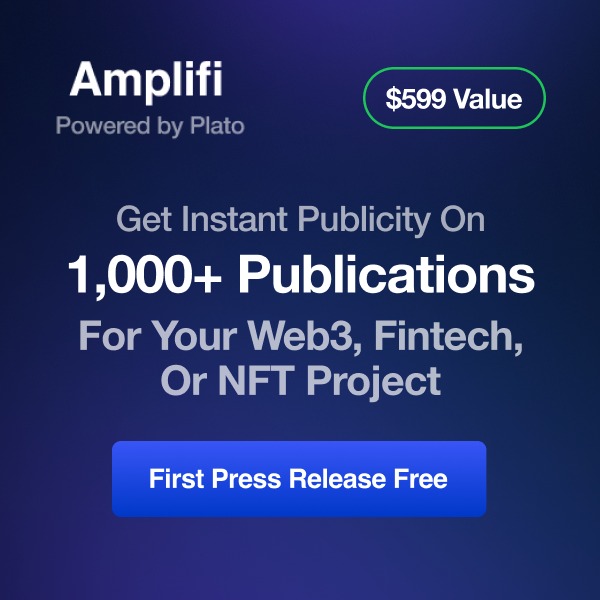Tag: Others
Hacking Attacks: Ethereum vs Terra Flash Loans
Experts Create Apple AirTag Clone That Can Bypass Anti-Tracking Measures
InvestAnswers: U.S. SEC Filings Show Big Year for Institutions Investing in Crypto
NayaPay Grabs a $13 Million Funding Round to Expand Pakistan’s Digital Payments
Eradicating corruption within SOEs

 |
Gontha urged the State-Owned Enterprises (SOEs) Ministry to dismantle past cases of alleged corruption in the company related to aircraft leasing.
He cited issues related to powerful groups in the company and the price difference between Boeing 777-300ER aircraft rental and CRJ1000 aircraft purchase.
Ghonta spoke of having reported the problems to several institutions ranging from the director-general of the Ministry of Law and Human Rights to the chairman of the Corruption Eradication Commission (KPK).
State-Owned Enterprises (SOEs) Minister Erick Thohir then filed a report on an alleged graft case in the financially beleaguered state-owned airline PT Garuda Indonesia (Persero) to the Attorney General's Office.
The report outlines the government's plan to restructure Garuda Indonesia as well as provides evidence regarding the procurement of ATR 72-600 aircraft.
We provide evidence from the investigative audit, so it is not an accusation, he asserted.
For the past two years, Garuda Indonesia had faced a financial storm due to past mismanagement that caused the company's debt to swell to more than Rp140 trillion, Thohir remarked.
Meanwhile, Thohir noted that the Garuda Indonesia case was not just about an aircraft but pertaining to an ecosystem.
He encouraged the Garuda Indonesia case to be resolved, as it was impossible to buy or rent an aircraft without a business plan and without calculating flight routes.
In the absence of such a calculation, Garuda ultimately paid the aircraft rental fee of up to 28 percent to the lessor as compared to only eight percent to other airlines' aircraft lessors.
"Hence, there is a system and there is a solution, so that in the future, Garuda will not repeat similar cases again since due to no management, the loss will also affect the people, in the form of expensive tickets," he pointed out.
In addition, the SOEs Ministry has taken steps to restructure and salvage the state-owned airline.
The ministry will focus on transforming the airline to make it more accountable, professional, and transparent.
More than 470 creditors have submitted claims of up to US$13.8 billion, or equivalent to Rp198 trillion, to Garuda Indonesia as of January 5, 2022, as part of a debt recast.
The figure has been cited by Garuda Indonesia's Suspension Debt Payment Obligation (PKPU) team, Thohir remarked.
After the verification is completed, the PKPU team will take a decision on January 19, 2022, regarding the amount considered to be valid and can be included in the restructuring process, he remarked.
The Garuda management had earlier submitted a proposal to reduce its liabilities by more than 60 percent, from US$9.8 billion to US$3.7 billion through restructuring.
The proposal aimed to help the company survive amid the COVID-19 pandemic that has protracted for two years.
Save Garuda
Commission VI of the Indonesian House of Representatives formed a working committee to rescue national carrier Garuda Indonesia.
"In principle, the Committee for Rescuing Garuda is a follow-up to the three work meetings undertaken by Commission VI with the SOEs minister, deputy ministers, and the Garuda Indonesia Board of Directors," Head of the Committee for Rescuing Garuda Martin Manurung stated.
Manurung explained that the working committee will work not only to look for management issues within the state-owned airline but also to explore options offered by the government.
The deputy chairman of Commission VI stated that the formation of the working committee was also a form of political support for Commission VI of the Indonesian House of Representatives for Garuda Indonesia to stay afloat.
"We want Garuda Indonesia, as a national flag carrier, to be able to stay in the air, to be able to fly, as an airline of national pride," Manurung noted.
Meanwhile, State-Owned Enterprises Minister Erick Thohir expressed support for the establishment of a working committee by Commission VI of the House of Representatives (DPR RI) to rescue and reform national carrier Garuda Indonesia.
Establishment of the working committee is proof of DPR RI's concrete support and commitment to monitoring the state-owned airline's rejuvenation process, the minister noted.
The political support that the legislature has exhibited would be key to rescuing the flag carrier, the minister noted while adding that his ministry is committed to cooperating with the parliament's working committee for seeking solutions to remedy issues that have plagued the national airline.
The ministry will also inform the working committee, which will monitor the airline's restructuring and reform progress, about Garuda Indonesia's future business and reform plan, he added.
The State-Owned Enterprises Ministry cannot rescue the airline alone, and we need to collaborate with relevant stakeholders, including DPR RI's Commission VI, in mending Garuda Indonesia, Thohir remarked.
Transforming Garuda Indonesia is a must to ensure the flag carrier survives amid the economic uncertainty posed by the COVID-19 pandemic and to ascertain that it records positive performance after the pandemic, he noted.
The ministry has also collaborated with the Attorney General's Office to investigate allegations of corruption by the airline management in the past, the state firm minister remarked.
Thorough reforms in the law enforcement and business aspects are expected to bolster Garuda Indonesia's performance to become more accountable, professional, and transparent in the future, Thohir affirmed.
Jiwasraya, Pension Fund
Efforts to eradicate corruption by the minister are also being made in the insurance business sector.
Thohir revealed that the completion of Jiwasraya's mega scandal case provided a solution for the aggrieved parties.
"However, what distinguishes us from other corruption cases is that the Jiwasraya case has a solution for those who were harmed. It is not a pending case for which there is no explanation. Those who were harmed will be recompensated for their losses," Thohir stated.
The minister drew attention to no solution being found to this day in several cases of corruption in pension funds and insurance. No refund was offered to the cheated parties.
For instance, the case of illegal online loans where no perpetrators or masterminds had yet been revealed and no refund was provided to the victims and deceived parties.
Thohir affirmed that the collaboration was necessary to solve the Jiwasraya case.
President Joko Widodo gave directions that the Jiwasraya case should be solved immediately.
After looking at the facts and evidence, an audit investigation from the Development Finance Comptroller (BPKP) and a report from the Supreme Audit Agency (BPK), the Ministry of SOEs officially reported the Jiwasraya case to the Attorney General's Office.
"The Ministry of SOEs does not want to become trapped in legal problems, and it focuses on corporate issues," the minister stated.
In addition, Thohir will fix pension funds in state-owned enterprises comprehensively this year.
The pension fund has become a breeding ground for corruption, with the pensioners' bills not being paid in the end, he pointed out.
To this end, the minister of SOEs urged Commission VI of the Indonesian House of Representatives to jointly conduct a focus group discussion on exposure regarding pension funds.
"We are ready, but we cannot clean it up right away, as there is a binding law. Hence, the Ministry of SOEs cannot intervene," Thohir noted.
Meanwhile, he remarked that comprehensive improvement in pension funds in the state firm became one of the SOE Ministry's programs in 2022.
The existence of state-owned companies aims to provide the greatest profits to the state.
Thereafter, the profits will be channeled back through various programs for the people, starting from infrastructure development to welfare improvement, and others.
There is no place for corruption within SOEs.
The accountability, transparency, and anti-graft approaches must continue to be implemented to build prosperous SOEs.
(c) ANTARA 2022. Reporter: Azis Kurmala; Editor: Sri Haryati
ANTARA/HO-Ministry of Energy and Mineral Resources/pri
Copyright 2022 ACN Newswire. All rights reserved. www.acnnewswire.comIn October 2021, former Garuda Indonesia commissioner Peter Ghonta took the lid off various problems brewing in the company.
10 Ways to Use Artificial Intelligence In Education
Artificial intelligence (AI) has become a hot topic in the business and education world in recent years. Many educators are curious about how they can use AI in their classrooms, and rightfully so – there are many potential applications for this technology! This blog post will discuss ten different ways to use AI in your […]
The post 10 Ways to Use Artificial Intelligence In Education appeared first on AiiotTalk - Artificial Intelligence | Robotics | Technology.
Rakuten Symphony agrees to acquire leading US-based cloud technology company Robin.io to deliver highly integrated telco-cloud for mobile

Collaboration between Rakuten and Robin.io has already been underway for more than two years, since Rakuten Mobile leveraged Robin.io in production for the Japan deployment of the world's first end-to-end fully virtualized cloud-native mobile network(1). Understanding the high performance requirements of mobile radio and network applications, combined with the need for financial efficiency and automated operation for scale, enabled Rakuten Mobile and Robin.io to create a complete cloud-native offering to deliver and manage the most demanding applications of this and the next era. Now, Rakuten Symphony and Robin.io are coming together to further accelerate and strengthen the complete end to end automated cloud offering for customers across the globe.
"Edge cloud requirements are unique and critical as mobile operators transition to 5G: The next era of digital experience requires another level of performance, responsiveness and consistency that enables telecom operator and enterprise transformation to be safely accelerated while creating a platform to support the next 10 years of experiences. Robin.io's cloud capability is proven to be effective for the most demanding workloads in mobile and we believe it will allow Rakuten Symphony to safely accelerate cloud-native transformation for our customers and prepare the industry for the future," said Tareq Amin, CEO, Rakuten Symphony. "We plan to continue to invest into Robin.io's cloud-native portfolio of products to further advance our capabilities and offer the most advanced and highly integrated cloud platform mobile operators demand."
"I am delighted that Robin.io's technology innovations over the last several years will now get a much bigger canvas to lead the vision for cloud-native transformation for the industry. Our vision to deliver simple to use, easy to deploy hyperscale automation is very well aligned," said Partha Seetala, CEO, Robin.io. "We believe Robin.io's customers will hugely benefit from the synergies of cloud-native technology innovations from Robin.io, and the open competitive infrastructure solutions and global scale of Rakuten Symphony. This is indeed an exciting phase for us as we work together to bring a much larger ecosystem together to deliver higher value for our customers globally."
With over 70 patents in the cloud-native technology space, Robin.io offers a highly differentiated and comprehensive product portfolio, including the following:
* Robin Cloud Native Storage (Robin CNS) -- An award winning, high performing, software-defined and industry-first application-aware storage solution that has been built from the ground-up for Kubernetes.
* Robin Cloud Native Platform (CNP) -- A leading open-source platform optimized for running data and network intensive applications used in production for various use cases involving databases, big data, data analytics, 5G, O-RAN, packet core & edge.
* Robin Multi Data Center Automation Platform (MDCAP) -- The web-scale platform for metal-to-service orchestration and automation.
Robin.io has petabyte size deployments with its software running on tens of thousands of servers in production today that span across its product portfolio and services Fortune 1000 customers across the Americas, Europe and Asia.
Adding Robin.io's portfolio for cloud-native deployment, lifecycle management and orchestration allows Rakuten Symphony to deploy highly reliable, flexible, scalable, secure and resilient mobile networks built on the principles of open interfaces, virtualization and interoperability. Together, the combined companies will also be able to deliver industry leading solutions for various traditional enterprise opportunities in areas of enterprise applications, data management, cloud and virtualization. Following the acquisition, Partha Seetala will take up the position of President of the Unified Cloud business unit of Rakuten Symphony.
The transaction is subject to closing conditions, including the expiration or termination of the applicable waiting period under the Hart-Scott-Rodino Antitrust Improvements Act of 1976, as amended, and other customary closing conditions. The terms of the acquisition are confidential.
(1) For a large scale commercial mobile network (as of October 1, 2019). Research: Stella Associate
About Rakuten Symphony
Rakuten Symphony is reimagining telecom, changing supply chain norms and disrupting outmoded thinking that threatens the industry's pursuit of rapid innovation and growth. Based on proven modern infrastructure practices, its open interface platforms make it possible to launch and operate advanced mobile services in a fraction of the time and cost of conventional approaches, with no compromise to network quality or security. Rakuten Symphony has headquarters in Japan and local presence in the United States, Singapore, India, Europe and the Middle East Africa region. For more information, visit: https://symphony.rakuten.com/
About Robin.io
Robin.io provides cloud-native capabilities that automate deployment, scaling and lifecycle management of enterprise and 5G applications on Kubernetes. The company's core technology uses application bundles and application pipelines, which are automated through patented infrastructure and application-topology awareness technology. Robin.io allows developers and platform engineers to deploy and easily manage data rapidly- and network-centric applications - including big data, NoSQL and 5G - independent of underlying infrastructure resources.
Headquartered in Silicon Valley, California, Robin.io solutions are recognized by Gartner, IDC, GigaOm and others for their innovation and reliability. More at www.robin.io and Twitter: @robin4K8S.
Media Inquiries:
Rakuten Symphony
Corporate Communications Department
[email protected]n.com
+81-50-5817-1104
Robin Systems, Inc.
San Jose, California
[email protected]
Copyright 2022 ACN Newswire. All rights reserved. www.acnnewswire.comRakuten Symphony, Inc. today announced an agreement to acquire leading Silicon Valley-based cloud technology start-up, Robin.io. The addition of Robin.io's multi-cloud mobility, hyper automation and orchestration capabilities to the Rakuten Symphony portfolio allows the creation of highly efficient, consistent high performance cloud infrastructure and operations, from edge to central data center.
Vietnam’s HD Bank Picks Thought Machine to Reinvent Its Digital Offerings
Vietnam’s HD Bank announced that it has formed a strategic collaboration with Thought Machine, the UK-headquartered core banking technology company. HD Bank is embarking on a multi-year strategy to develop
The post Vietnam’s HD Bank Picks Thought Machine to Reinvent Its Digital Offerings appeared first on Fintech Singapore.
$70 Million Later, Pixelmon’s Founder Calls Artwork Reveal ‘a Horrible Mistake’
Parachain Auctions: Painful or Productive?

Colorado Will Allow Residents to Pay Taxes with Crypto
Colorado has set forth a new law that will allow people to pay for taxes and fees with cryptocurrency. Colorado Says “Yes” to Crypto Payments for Tax Fees Governor Jared Polis announced the news late last week, commenting: In Colorado, we’ve been laying the groundwork to be a center of crypto and blockchain innovation for...
The post Colorado Will Allow Residents to Pay Taxes with Crypto appeared first on Live Bitcoin News.
Upcoming summit could push AVAX through $100 soon

AVAX is in recovery as the crypto market bounces back. Avalanche has a major…
The post Upcoming summit could push AVAX through $100 soon appeared first on Coin Journal.




